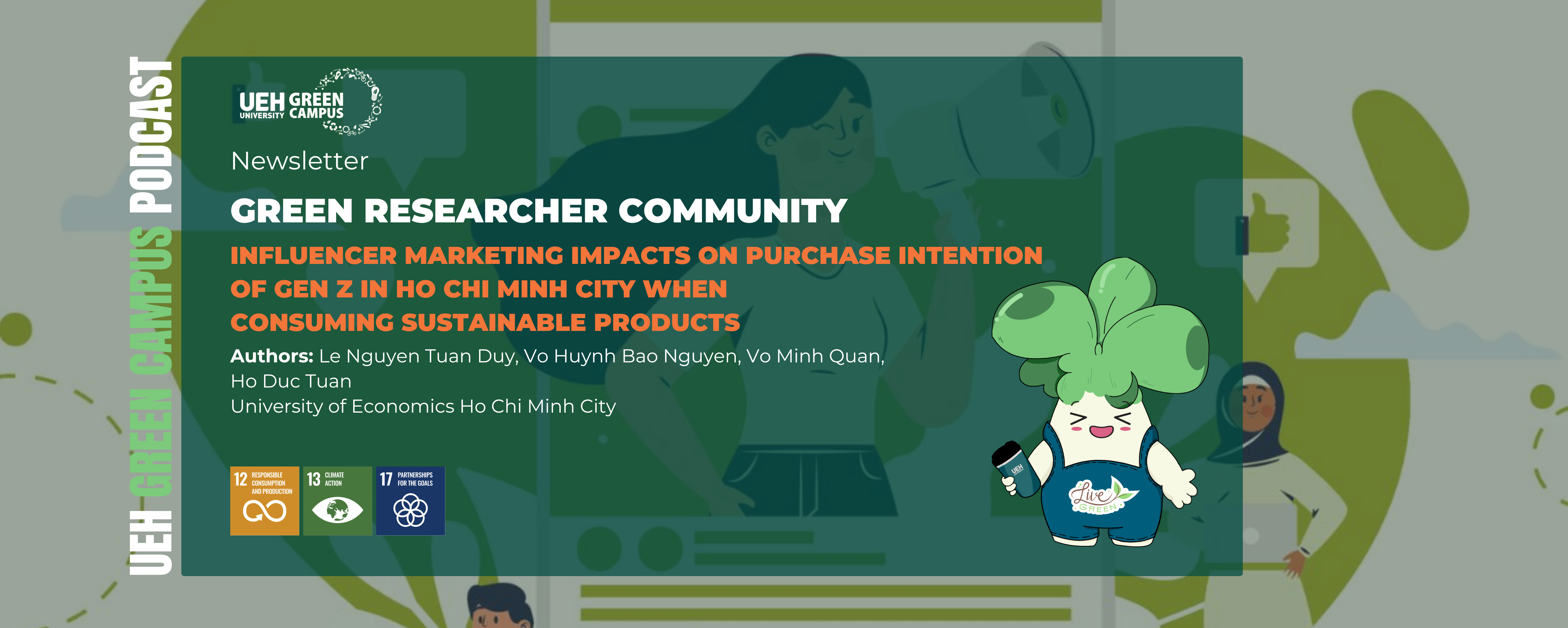Keywords: influencer marketing, sustainable products, Generation Z, consumer intention, sustainable consumption, environment.
Along with the rapid development of social media, the influence and reach of influencers have increased significantly, making influencer marketing (IM) one of the most important strategies in advertising and brand communication. Let's follow the research by a group of students from the University of Economics Ho Chi Minh City (UEH) to explore the relationship between influencer marketing activities and the sustainable purchasing intentions of Gen Z in Ho Chi Minh City.

Exploring the green consumption motivations of Generation Z in Ho Chi Minh City
*The compatibility between the influencer and the product is the foundation for creating a natural connection with customers
Compatibility is the degree of fit between the influencer and the product they are promoting. When an influencer's lifestyle, image, or personality aligns closely with the product, the message they convey becomes more natural and receptive. Consumers often remember what is familiar to them, so this relevance not only helps increase brand affinity but also boosts customer attention and positive attitudes. Conversely, if they promote a product that is too unfamiliar to their existing image, the audience may feel awkward, inauthentic, and easily lead to skepticism.
*The number of followers is an easily visible figure, but behind it lies a much more complex story
The number of followers is also a notable factor in influencer marketing. A large number of "followers" can create an advantage in terms of reach, helping the message reach more people and enhancing brand reputation. However, this number doesn't always equate to reliability. Reality shows that influencers with too few followers often find it difficult to persuade due to a lack of social recognition. But conversely, those with a "huge" following sometimes make the audience feel distant, or suspect that their content is overly commercialized. Therefore, the number of followers should be viewed as a double-edged sword, and the effectiveness will largely depend on how the influencer builds engagement and trust with their community.
*Transparency doesn't always equate to effectiveness, especially in the world of social media advertising
An important factor to consider is consumer reaction when they realize they are being exposed to advertising. Based on Brehm's psychological reactance theory, people tend to resist persuasive attempts when they feel their freedom of choice is threatened. In the social media environment, disclosing sponsorship information makes users easily recognize advertising content, leading to suspicion, defensiveness, or even resistance. As a result, these types of posts often struggle to create a positive impression of the brand and can easily reduce the effectiveness of communication.
*Customer attitude is the bridge between awareness and purchasing behavior
Consumer attitudes toward a brand play a key role in shaping purchase intentions. When they have a positive attitude, they not only tend to choose the product but are also willing to pay more or recommend it to others. This shows that in the context of Gen Z being a customer group sensitive to advertising, shaping their positive attitudes toward the brand becomes key to promoting sustainable consumer behavior.
*Knowledge is the compass that guides consumers' purchasing decisions
Another notable factor is consumer knowledge, which directly influences how they seek, process information, and make purchasing decisions. According to Alba & Hutchinson, knowledge is not just the ability to memorize, but also the capacity to analyze and evaluate information. Product knowledge is formed from personal experience or exposure to advertising, helping consumers recognize value and risks before making a choice. With sustainable products, highly knowledgeable individuals often evaluate based on intrinsic characteristics, while those with limited understanding are more influenced by external factors such as brand or packaging. Therefore, the level of Gen Z's understanding of sustainable products plays a decisive role in how they approach information and form consumer choices.
*Environmental concern is the driving force behind Gen Z's choice of sustainable consumption
The final factor is environmental concern – a measure reflecting individuals' awareness and commitment to action on ecological issues. People with high environmental awareness often proactively adjust their behavior to minimize negative impacts, viewing it as part of their core value system. Therefore, they tend to prioritize green products and maintain a sustainable lifestyle. Reality shows that environmental concern not only positively impacts the intention to purchase eco-friendly products but is also a direct predictor of sustainable consumer behavior. In the context of Gen Z increasingly valuing social responsibility and environmental protection, this is the key driver that motivates them to choose green products.
What does Gen Z say thru the data?
The research results show that the level of fit between the influencer and the product is a key factor in forming positive consumer attitudes, while also minimizing the negative impact of sponsorship – thus affirming the role of authenticity in shared content. Beside, the number of followers also significantly influences attitudes toward a brand, with macro-influencers often generating stronger positive sentiment than nano-influencers due to the clear social effect. Conversely, disclosing funding has a negative impact, especially on Gen Z – a consumer group sensitive to commercial advertising. However, this effect can be minimized if the fit between the influencer and the product remains high.
Additionally, brand attitude was identified as the most direct and powerful predictor of sustainable purchase intention. Consumers with a positive attitude toward a brand often prioritize choosing environmentally friendly products. At the same time, knowledge of sustainable products and environmental concerns also have a significant positive impact, indicating that awareness and life values are the core drivers of Gen Z's sustainable consumer behavior.
From this, it can be affirmed that the sustainable shopping intentions of Gen Z in Ho Chi Minh City are simultaneously influenced by the characteristics of influencers, brand attitudes, personal knowledge, and environmental awareness.
Lessons for the brand
First, businesses need to collaborate with influencers whose personalities, lifestyles, and social status align with sustainable products to ensure compatibility between personal image and brand message, thereby effectively attracting Gen Z customers.
Second, the number of followers has been proven to have a significant impact on Gen Z's purchase intention in Ho Chi Minh City; therefore, choosing influencers with a large follower base will help increase reach and communication effectiveness.
However, businesses need to be cautious when publicizing sponsorship messages, as this can cause a psychological backlash – making consumers question the promotional motives, reducing their goodwill toward the brand and products. When consumers perceive influencers as having ulterior motives, they are likely to lose trust and reduce their acceptance of advertising messages.
Finally, brands should invest in raising Gen Z's awareness of sustainable products, while also spreading the message of environmental protection and the value of a green lifestyle, thereby promoting positive perceptions and encouraging sustainable consumer behavior.
The research paper has indirectly contributed to SDGs 12, 13, and 17. See all Research paper “Influencer marketing impacts on purchase intention of gen Z in Ho Chi Minh city when consuming sustainable products” HERE.
The authors: Le Nguyen Tuan Duy, Vo Huynh Bao Nguyen, Vo Minh Quan, Ho Duc Tuan - University of Economics Ho Chi Minh City.
This article is part of the Green Research Community series with the message "Research Contribution for UEH Living Lab Green Campus" UEH sincerely invites the community to watch the next Green Research Community newsletter.
*To create maximum conditions for the development of the "UEH Green Researcher Community," members of the community will be able to attend scientific research methods classes related to the topics of Living Lab and Green Campus. Additionally, upon meeting the standards, the research team will receive a certificate from the UEH Sustainable University Project Board and financial support for a standard-compliant project.
Additional information:
SDG 12 – Responsible Consumption and Production focuses on ensuring sustainable production and consumption patterns, thereby reducing pressure on natural resources and minimizing waste and environmental pollution. This goal emphasizes the importance of effective waste management, optimal resource utilization, and promoting changes in individual and community consumer behavior, particularly thru education and awareness.
SDG 13 – Climate Action calls for urgent action to combat climate change and its negative impacts, thru reducing greenhouse gas emissions, enhancing adaptability, and raising public awareness. This goal not only includes national-level policies but also requires changes in individual and community behavior in daily life, especially in areas directly related to waste generation and management.
SDG 17 – Global Partnerships emphasizes the role of international cooperation in the successful achievement of the Sustainable Development Goals. This is not just financial support or technology transfer; it is also a coordination of policies, trade, science, and knowledge among countries, regions, and global organizations. Strong partnerships will be key to turning shared goals into concrete action.
News, Photos: UEH Green Campus Project, UEH Youth Union - Student Association, UEH Communications and Partnership Development Department
Voiceover: Tam Dan







